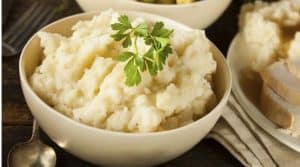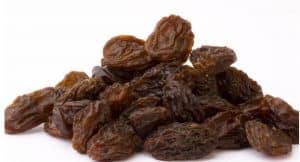

Mashed potato is a favourite of ultra-endurance athletes for a reason.
- By PETA BEE
- THE TIMES
New research shows that the key to giving your fitness levels a boost could be in your kitchen cupboard. Last month scientists at the University of Illinois reported that a dollop of cold mashed potato was as effective as expensive energy gels at boosting staying power in a group of cyclists. Other studies have shown that eggs, milk and bananas can improve your fitness. We asked the experts which foods can really help your workout.
Mashed potato can boost endurance
A longstanding favourite of ultra-endurance athletes, mashed potato is a high-carb, low-fat food. “Add a little milk when you mash it and it lowers the potato’s glycaemic index for a longer-lasting boost,” dietitian Helen Bond says.
In their study, published in Journal of Applied Physiology, the Illinois scientists found no differences in the performance of endurance cyclists who had been given potatoes and those who had used energy gels during the laboratory trials.
Bananas help to prevent muscle soreness
Last year a study in the journal PLOS One described how a group of cyclists were provided with water and 225ml of a sports drink or half a banana every 30 minutes during a 75km bike ride. The trial tests revealed that inflammatory markers in the blood were lower when the banana or sports drink were consumed, meaning a faster recovery rate. Bananas had a more potent anti-inflammatory effect, which the scientists said might translate into fewer sore muscles.
“Bananas are an easily digested form of energy that is helpful both during and after exercise,” says John Brewer, the author of Run Smart.
Jelly cubes protect tendons and cartilage
Ordinary jelly cubes contain collagen, the structural protein that supports bones, tendons, cartilage and skin. Consuming collagen — in the form of jelly cubes or gelatine powder from supermarkets — may help to prevent or heal injuries. In January scientists from the Australian Institute of Sport reported that taking collagen sped up a return to running in people with achilles tendon problems.
“Make sure you take it daily with vitamin C, essential for its production,” says Graeme Close, a professor of human physiology at Liverpool John Moores University. You could eat several jelly cubes or 80g of gelatine powder mixed with 235ml of water and 375ml of Ribena.
Beetroot juice improves stamina
It is well established that beetroot juice raises nitrate levels in the blood. “Nitrate is converted in the body to nitric oxide,” nutritionist Anita Bean says. “Since this gas helps to dilate blood vessels, it aids the delivery of oxygen and nutrients to muscles during exercise.”
A University of Exeter study found that drinking 500ml a day of organic beetroot juice for six days boosted stamina and helped people to exercise for up to 16 per cent longer during a workout.
Greek yoghurt makes you stronger
Greek yoghurt contains more protein than regular yoghurt and is a favourite of elite athletes, who often take a tablespoon or two before bed because of its abilities to boost muscle growth and repair. In April a Canadian study asked 30 male university students to follow a strength program across 12 weeks. Those given a 20g dose of Greek yoghurt three times on training days found their strength greatly improved.
Boiled eggs aid muscle growth
Boiled eggs are a compact source of protein with muscle-building benefits.
A study in the American Journal of Clinical Nutrition looked at the muscle-building effects of whole boiled eggs versus egg whites after a weight training session. The researchers reported that boiled eggs ended up producing a 40 per cent greater muscle boost — a result, they suspected, of as-yet-unknown compounds in egg yolks. It is recommended that you consume between 25g and 30g of protein to aid muscle growth after a strength workout: two eggs is ideal.
Raisins give instant energy


A paper in the Journal of the International Society of Sports Nutrition found that raisins worked as well as energy chews in improving the 5km times of a group of runners.
“The quick-release energy burst comes from sugar in raisins,” says Matt Cole, course leader in sport and exercise nutrition at Birmingham City University. “But they also provide fibre, potassium, iron and other nutrients.” Eat a handful when flagging.
Brazil nuts boost the immune system
Brazil nuts have powerful antioxidant properties, largely thanks to their rich selenium content. During intense exercise the body produces elevated levels of reactive molecules that slow recovery and suppress the immune system, and the selenium helps to counteract that. “Eating five Brazil nuts after training can help to speed up recovery and reduce the risk of illness,” performance nutritionist Alex Popple says.
Milk is the perfect isotonic drink
Isotonic drinks are essential for endurance activities lasting longer than 90 minutes. They replace not only fluids but also the electrolytes, or body salts, lost through sweat. Ordinary cow’s milk “is at least comparable to and often outperforms most commercially available recovery drinks”, according to researchers from Loughborough, Newcastle and Northumbria universities who reviewed its benefits for a study in the European Journal of Sports science last year.
Honey boosts energy levels
Honey is the original energy gel, with its mix of 80 per cent sugars, 18 per cent water and combination of minerals, vitamins, pollen and protein. Research at the University of Memphis Exercise and Sport Nutrition Laboratory concluded that honey consumed performed as well as the ingredients found in many gels when it came to providing a burst of energy and power in endurance athletes.
Turkey helps to reduce muscle fatigue
Before the 2012 London Olympics, performance nutritionists at the English Institute of Sport recommended that members of Team GB consume as much turkey as possible. It has a lower fat content than most other meat, while turkey breast contains one of the highest concentrations of the amino acid beta-alanine, converted in the body to a compound called carnosine and stored within the muscles. Beta-alanine and carnosine have been shown to help to buffer lactic acid during intense exercise, reducing muscle fatigue.
Apricots help to replace potassium
“Dried apricots are a concentrated source of natural sugar for a quick energy release,” Cole says. This is why you will often find them being carried by ultra-runners and cyclists. But they also provide potassium, a mineral that is lost in sweat.
Green tea can help to burn fat
Researchers at the University of Birmingham found that green tea can increase fat oxidation — the rate at which fat is broken down inside the body — during moderate-intensity exercise. It is thought to be a result of compounds in green tea that inhibit hormones and increase the amount of fat transported to muscles, where it is then used as a fuel for exercise. A 2015 study at the University of NSW found that capsules of green tea extract boosted fat-burning in a group of women who took them 90 minutes before a 20-minute high-intensity interval training bike session.
Bicarbonate of soda may reduce lactic acid
Sprinters have taken bicarbonate of soda for years in the belief that it helps to counteract the effects of lactic acid, a waste product that accumulates and produces muscle fatigue. A study in the Journal of the International Society of Sports Nutrition found that taking it before an HIIT workout resulted in a better performance and faster lactate clearance. Take 20g with water on an empty stomach.
Cherry juice is an anti-inflammatory
The juice from tart montmorency cherries is taken in shots by footballers, rugby players and athletes. It has high quantities of phytochemicals that produce anti-inflammatory effects, reducing pain and aiding recovery from exercise.
The Times
Get A Gym Membership Today.
Call now, we’d love to welcome you to our Southport Gym.
